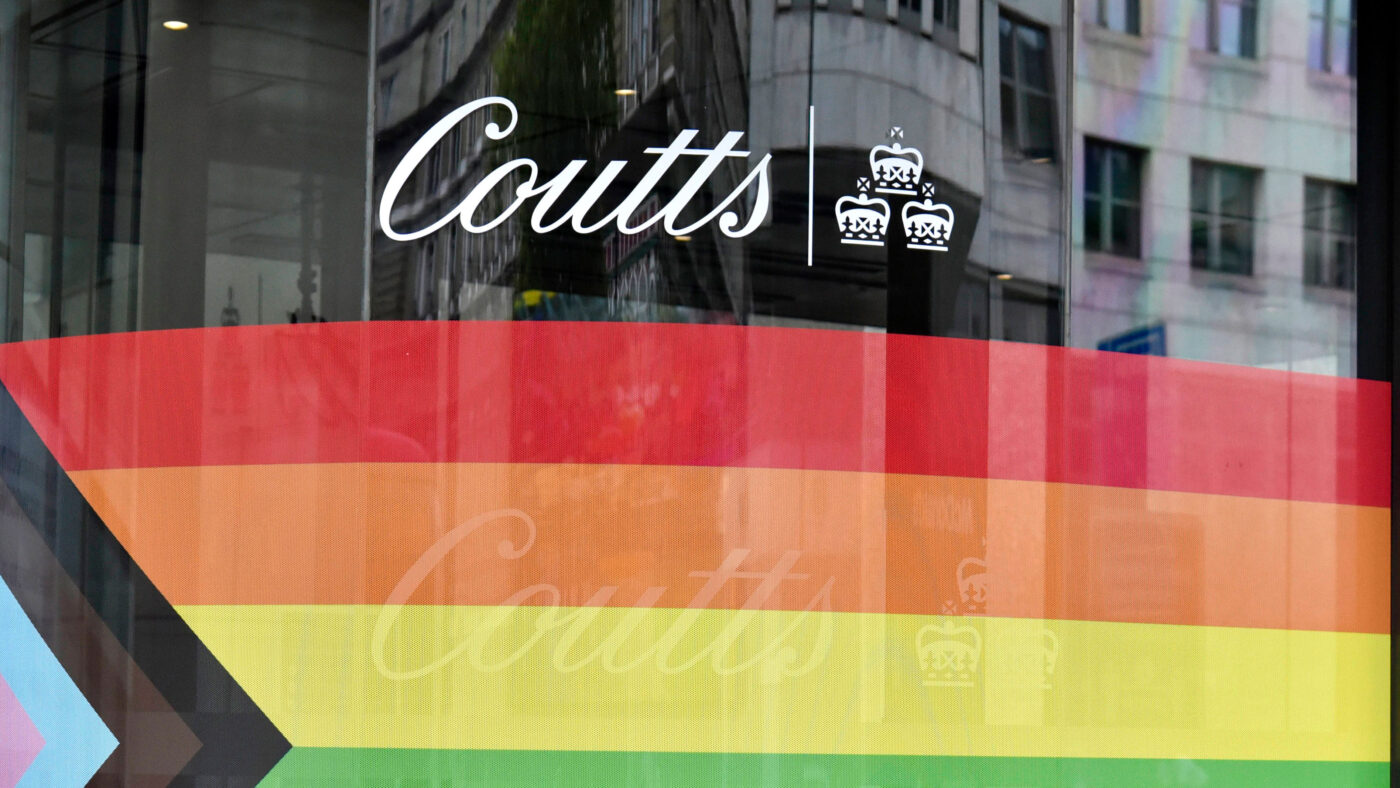According to its corporate bumf, private bank and wealth manager Coutts has a mission in ‘helping create a more inclusive culture’. Unfortunately, that doesn’t seem to include offering its services to individuals whose political views differ from those of its directors.
Now we know for sure that the bank closed Nigel Farage’s accounts not because – as has been erroneously reported – his funds fell short of the criteria for being a Coutts customer, but because a panel decided that the politics of the former Ukip and Brexit Party leader ‘do not align with our values’.
Whatever you think of Nigel Farage and his politics, Coutts’ actions ought to leave a feeling of profound discomfort. As Farage has himself observed, it brings to mind the ‘social credit system’ being developed by the Chinese government, where people judged to be of low moral worth (ie whose values don’t align with those of the Chinese Communist Party) can have their access to financial services blocked, cutting them off from participation in the economy.
For the Government it is a reminder why it should never, ever agree to do what many in the financial sector would love it to do and abolish the use of cash. The availability of cash as a free alternative to banking services is an essential bulwark against the misuse of corporate power. Banks have been granted powers rapidly to close accounts in an effort to tackle fraud – yet in this case Coutts has used them in order to promote the political views of its leaders.
Should the Government go further and prohibit banks from closing customers’ accounts on the basis of their political views – just as it would be illegal to refuse to offer them banking services on the grounds of their race, gender or sexual orientation?
It would be nice to think that the market could be allowed to sort out this problem – surely there would be a very good PR opportunity for one of Coutts’ rivals to reach out to Farage, offer to open him an account and make a great show of stating that it welcomes all customers, and will never discriminate against them in the grounds of their politics. But if need be, then, yes, if we are going to have an Equality Act which prohibits discrimination on the basis of protected characteristics such as race, religion and sexual orientation then why shouldn’t it also apply to someone’s political views? Opponents of Farage would be very unwise to cheer what Coutts has done when it could well be, say, Just Stop Oil activists who find their bank accounts being closed next.
It is especially disturbing because Coutts, as part of the NatWest Group (formerly RBS Group) is part public-owned. The NatWest Group only continues to exist because it was bailed out with large quantities of public money in 2008 – an intervention which according to the Office of Budgetary Responsibility (OBR) has cost taxpayers £27bn.
I have always thought that the bailout was a mistake – that it should have been allowed to go bust, taking its directors’ shares and pensions with it, and that its operations should have been put into receivership. I think that even more now.
The closing of Farage’s accounts is far from the biggest scandal in which the banking group has been involved in the years since its bailout. Between 2009 and 2013 16,000 small businesses were moved to its Global Restructuring Group which was supposed to have helped them through difficult economic times but resulted in many going bankrupt, with RBS picking up their assets. RBS later paid £125m in compensation to its victims, though the Financial Conduct Authority declined to take further action, saying its powers were too limited.
It is hard not see to the bank’s grandstanding on fashionable woke issues as a means of trying to launder its reputation – and perhaps of deflecting attention from its high corporate pay. A more equal redistribution of wealth does not appear to feature very highly in Coutts’ or NatWest’s values, not when its chief executive, Dame Alison Rose, was paid £5.25 million last year.
How much better that the wretched bank had been put out of its misery in 2008. It would have been a warning to the entire banking sector not to behave recklessly; instead the state affirmed the banks’ own beliefs that they were too big to fail. Who knows, it might also have saved us from the grim spectacle of a bank catering to the very wealthy harping on about ‘inclusivity’ and ‘values’.
Click here to subscribe to our daily briefing – the best pieces from CapX and across the web.
CapX depends on the generosity of its readers. If you value what we do, please consider making a donation.


